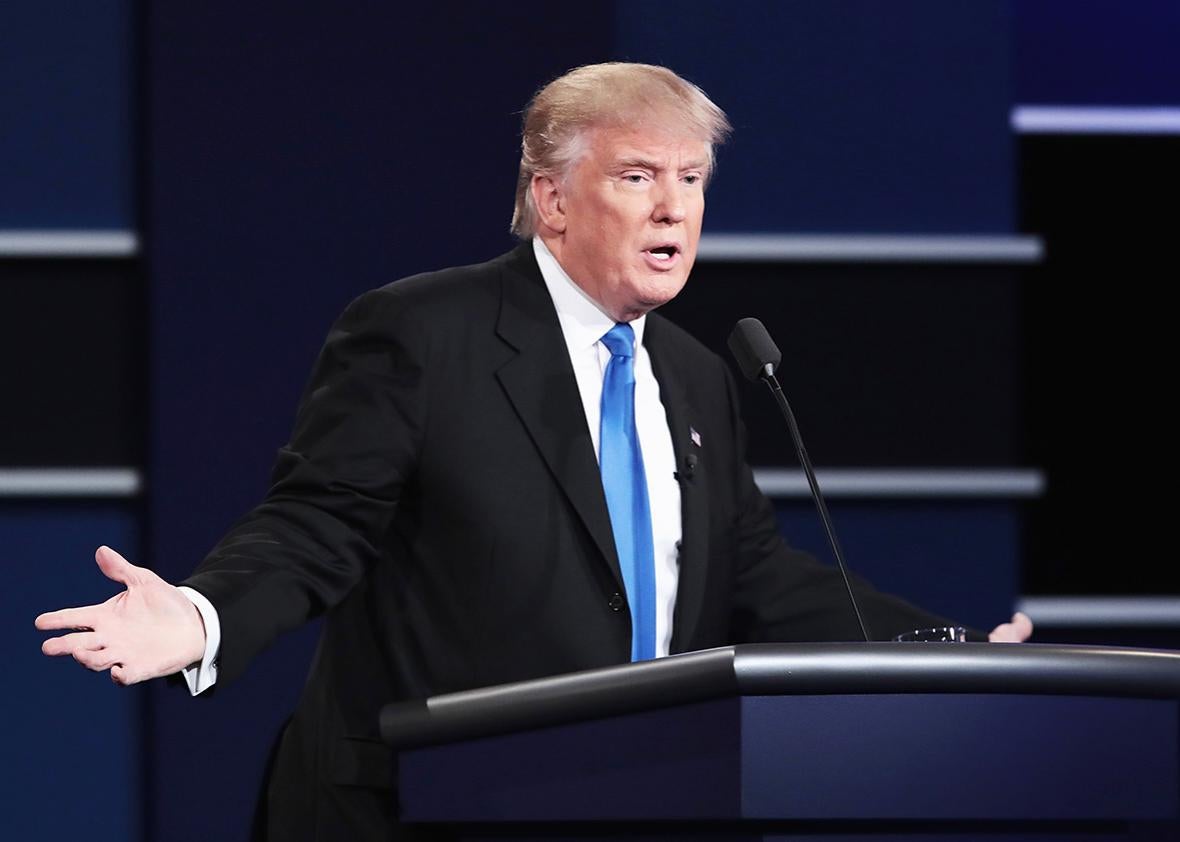So what exactly will be the upshot of Monday night’s presidential debate? Did Donald Trump establish that he is the change agent that America desperately needs and that his command of policy detail is more than adequate? Did Hillary Clinton dismantle Trump, clearly demonstrating to millions of television viewers that he’s an empty suit? Did either candidate do anything to change the minds of some among the unusually large number of undecided voters who’ve made this year’s presidential polls so volatile? My sense is that the debate helped Clinton a bit more than it helped Trump.
Why is that? I’m sorry to say that my reasoning is embarrassingly simple. To the surprise of many observers, this year’s presidential election has wound up looking awfully familiar. Democratic voters are largely consolidating behind Clinton, and Republican voters are largely consolidating behind Trump. There are some quirks this year, however. Minor party candidates are playing a much bigger role than they have in years. Both Gary Johnson and Jill Stein have large followings among disaffected younger voters, a development that is proving costly for Clinton. Trump’s problem is different. To win, he doesn’t just need Johnson and Stein to retain voters who might otherwise vote for Clinton. He needs to win over Republican holdouts.
In past elections, Republicans could rely on the support of large numbers of college-educated suburban professionals, and in particular the married white women among them. But Trump’s coalition is quite different. Relative to a typical Republican, Trump fares quite a bit better among non-college-educated white men. Yet these gains seem to have been canceled out by losses among women, college-educated and non-college-educated, and college-educated men. My colleague Eliana Johnson, the Washington editor of National Review, often argues that the most crucial voters in this election will be married white women in Pennsylvania. This might be a slight overstatement. Married white women in, say, Colorado will probably be important as well. But there is no question that married white women have been a weakness for Trump, in sharp contrast to Mitt Romney. If Trump did nothing but try to woo married white women in swing states between now and November, it would be time well spent.
And that’s why Trump fell short on Monday night. Constantly interrupting Clinton and painting an apocalyptic portrait of the state of American life might have pleased his adoring fans, who love him for his forceful presence. The trouble is that we’ve long known that Trump is supremely confident and that he has no qualms about bulldozing over others. To surpass Clinton, Trump needed to do more than just buck up his fans. He needed to reach reluctant Republican-leaning women who have serious misgivings about his character and temperament. By confronting him with his derogatory remarks about women, I’m guessing Clinton heightened these concerns more than Trump succeeded in allaying them.
With his celebrity status and his unconventional style, you’d think Trump would have done more to scramble the electorate. There are signs that he has tried to do just that—by wooing Bernie Sanders voters, by railing against foreign wars and foreign entanglements, and by embracing economic populism. Over the past few weeks, Trump has called for the creation of a new taxpayer-funded maternity-leave benefits program and he’s told Dr. Oz that he’s all for expanding Medicaid, and both stances have earned him jeers from small-government conservatives. On criminal justice, Trump has been running to Clinton’s right by emphasizing law-and-order themes. But every now and again, he’s tried swinging to her left, e.g., by criticizing her in Monday night’s debate for using the term superpredator to refer to violent young offenders (or, in Trump’s phrase, “young black youth”).
Yet Trump largely steered clear of heterodoxy. When Clinton raised questions about what Trump might be hiding in his undisclosed tax returns, and whether he has paid any federal income taxes at all, Trump said essentially that any federal taxes he’d pay would have been wasted—a hard line to square with his defense of Social Security and Medicaid and his support for a new program for working mothers. But that contradiction never really came up, because Trump did little to advertise his departures from small-government conservatism. Apart from condemning trade agreements for their alleged role in devastating American industry, he mostly stuck to tried-and-true conservative nostrums, like calling for lower taxes and deregulation to stimulate growth. Instead of scrambling the electorate, Trump is just scrambling to get Republican voters to come home.
